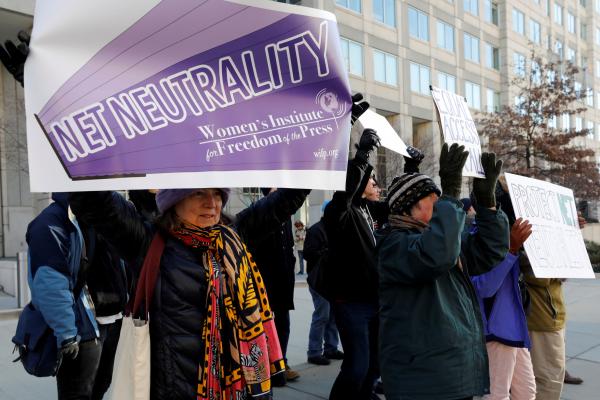The Federal Communications Commission (FCC) voted to repeal net neutrality protections on Dec. 14, allowing internet providers to block or throttle some apps and websites, according to The Washington Post.
The decision reversed the government's 2015 decision during the Obama administration that required all internet providers to treat all online services equally and regulated high-speed internet delivery as a traditional utility service.
The Washington Post reports:
Consumer advocates fear that those freedoms could be curtailed in a world where Internet providers are legally permitted to give preferential treatment to sites they own or share commercial relationships with, and to discriminate against apps they do not like.
For example, under the net neutrality rules Verizon was not allowed to favor Yahoo and AOL, which it owns, by blocking Google. In addition, Verizon was not be allowed to charge Google extra fees in order to connect to Verizon customers. Under the new rules, that type of behavior would be legal, as long as Verizon disclosed it. Some analysts say affected content companies could pass any new network costs to Internet users, and that Internet providers will develop new ways to market Internet service that could lead to higher prices.
"You and I and everyone else who uses the internet for personal use will see some changes in pricing models. For most of us, I expect we will pay more. Service bundles (e.g., social media package, streaming video package) will likely be bolted on to basic transport for things like web surfing and email," Glenn O'Donnell, an industry analyst at the research firm Forrester, wrote in an email.
Read more here.
Got something to say about what you're reading? We value your feedback!





